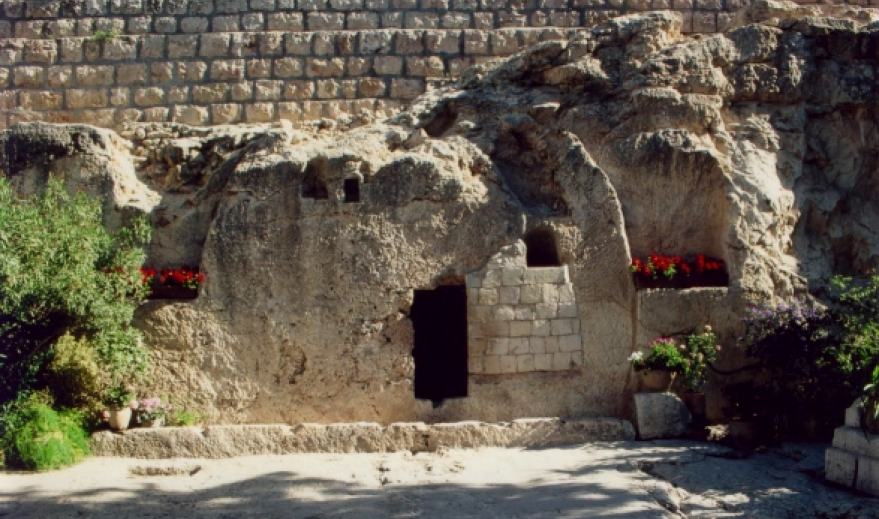 There is no specific instruction to celebrate or observe Easter in the New Testament. Easter is not about “Easter eggs” or wearing pastels. All these are pagan practices.
There is no specific instruction to celebrate or observe Easter in the New Testament. Easter is not about “Easter eggs” or wearing pastels. All these are pagan practices.
To a Christian, Christ is risen and alive ‘every day’, and his life should be enjoyed and celebrated as such. Christians also have a Passover meal regularly, for the Lord’s Supper is a Passover Meal, commemorating the liberation of Christ.
In fact the feasts of Passover, Unleavened Bread, and the First Fruits foreshadow the crucifixion and resurrection of Jesus Christ. The apostle Paul in 1 Corinthians 15:20 tells us, “But now Christ is risen from the dead, and has become the first fruits of those who have fallen asleep.”
He also speaks of keeping the feast and getting rid of the yeast or leaven because Christ our Passover lamb has been sacrificed (1 Corinthians 5:7).
What is more Jesus died at 3:00 P.M, “Now it was about the sixth hour, and there was darkness over all the earth until the ninth hour” (Luke 23:44). This was the very time when thousands of Passover lambs were being slaughtered (see Exodus 12:18-20).
This is confirmed in the gospel of Luke “Then came the day of Unleavened Bread on which the Passover lamb had to be slain” (see Luke 22:7-20).
Jesus said that He did not come to destroy the law but to fulfil it. So you cannot understand the New Testament without the Old.
That is why so many of the words in Exodus are used again in the New Testament-words such as law, covenant, blood, lamb, Passover, Exodus, leaven.These words are used in the New Testament but derive their meaning from the book of Exodus (see Exodus 12:1-11; 12:43-47).
Another example is six months before Jesus died on the cross He was 4,000 feet high on top of Mount Hermon in the north of Israel, talking with Moses and Elijah. Luke’s Gospel tells us that they talked about His exodus from this world, which was about to be fulfilled in Jerusalem (see Luke 9:28-31).
John the Baptist who was the forerunner sent to prepare the way before Christ intoduced Him with the words: “Behold! The Lamb of God who takes away the sin of the world!” (John 1:29).Thus he proclaimed Jesus as the appointed Savior whose sacrificial death and shed blood would accomplish all that had been foreshadowed by the Passover lamb.
Therefore, Christ is our Passover Lamb the one who has been sacrificed for us so that the angel of death would pass over those who trust in Him.
He rose from the dead on the third day and His resurrection liberates us from death, just as the Hebrews were liberated from slavery on the third day after the Passover. So we celebrate resurrection Sunday because:
The Tomb is Empty
The Gospels talk of Jesus being in the tomb three days and three nights, but traditional Friday-to-Sunday interpretations leave us with one day and two nights! Some Bible scholars believe that Jesus died on the Wednesday afternoon. For instance, prominent Bible teacher David Pawson explains:
We have assumed that Friday was the day he died, because the text tells us he died on the day before the Sabbath. But in the year in question, it was not the Saturday Sabbath. John’s Gospel tells us that the Sabbath was a special High Sabbath (see John 19:31-36).
The Passover began with a Sabbath and, in the year AD 29, which was almost certainly the year Jesus died, the first day of the Passover was a Thursday, with the Wednesday being the eve of the Passover.
This fits all the evidence better than all the other theories. So if he died at 3 o’clock on the Wednesday and he rose between 6 p.m. and midnight on the Saturday, every bit of the Gospel evidence fits.
The 12 Apostles and the Resurrection
When Jesus Christ chose the twelve apostles, their role was to confirm by their words and their lives the reality of the life, death and resurrection of Jesus Christ.
After the arrest, trial, and death of Jesus Christ, these men initially fled in fear. They were devastated by His death because death seems so cruel and final.
They must felt terrible when they saw their Lord, whom they had left everything to follow, being crucified on the cross.
One of the twelve apostles known as Matthew records that immediately after Jesus had died, the tombs were opened and many bodies of the saints who had fallen asleep in death were raised to life.
And coming out of the tombs after His resurrection, they went into the holy city and appeared to many people (see Matthew 27:52-53). He also gives an account of the guarded tomb and the report by the soldiers that the body was stolen:
When they had assembled with the elders and consulted together, they gave a large sum of money to the soldiers, saying, “Tell them, ‘His disciples came at night and stole Him away while we slept.’ And if this comes to the governor’s ears, we will appease him and make you secure.” So they took the money and did as they were instructed; and this saying is commonly reported among the Jews until this day (Matthew 28:12-15).
The divine side of Christ’s death, however, is also brought out in Mark, for Jesus was sure from the very beginning that he had come to die. He predicted his death, and his resurrection, more than once.
Following the resurrection. He records Jesus’ return to Galilee and his meeting with the 11 disciples and more than 500 at one time (see 1 Corinthians 15:5).
Luke a doctor by profession from Antioch, Syria and the only Gentile writer in the Bible had a keen interest in researching the events surrounding the life death and resurrection of Jesus Christ.
He describes that, after Jesus had physically risen from the dead, three women who were friends of the disciples went to the tomb early Sunday morning to anoint His body with spices.
When they arrived at the tomb, they were shocked to find the stone rolled aside and the tomb empty. It was only the linen cloths in which Jesus’ body had been wrapped that lay empty in the tomb. The two angels told them:
Why do you seek the living among the dead? He is not here, but is risen! Remember how He spoke to you when He was still in Galilee, saying, ‘The Son of Man must be delivered into the hands of sinful men, and be crucified, and the third day rise again (see Luke 24:1–25).
The Bible tells us that, until then, they still hadn’t understood the Scripture that He must rise again from dead (see Psalm 16:10). “And they remembered His words. Then they returned from the tomb and told all these things to the eleven and to all the rest.”
In John’s intimate account, Peter and John decided to go and see for themselves where Jesus was buried. Indeed, they too were also surprised that Jesus was not in the tomb.
As Peter and John returned home, Mary was still standing at the tomb crying, and as she was weeping, she stooped down and looked into the tomb. Suddenly, the angels asked her why she was crying, and she replied that it was because they had taken away her Lord and she didn’t know where they put Him.
She decided to leave but saw someone standing there. Thinking it was the gardener, she asked Him where He had put the body of Jesus. The man then called Mary by her name. At that moment, she realized that she was not talking to the gardener but to her risen Lord.
Jesus said to her, “Mary!” She turned and said to Him, “Rabboni!” (which is to say, Teacher). Jesus said to her, “Do not cling to Me, for I have not yet ascended to My Father; but go to My brethren and say to them, ‘I am ascending to My Father and your Father, and to My God and your God.”
Mary Magdalene came and told the disciples that she had seen the Lord, and that He had spoken these things to her. (John 20:16–18)
That Sunday evening, the disciples were meeting in secrecy behind closed doors because they were afraid of the Jewish leaders. Suddenly, Jesus appeared to them.
As He appeared to them, He said, “‘Peace be with you.’ When He had said this, He showed them His hands and His side. Then the disciples were glad when they saw the Lord” (John 20:19–20).
Soon after Christ had appeared to His disciples, they told Thomas, who was absent, that the Lord had appeared to them. Thomas refused to believe them, saying he needed to see and touch Christ’s wounds and His side before he could believe such a report (see John 20:25).
He did not want to accept their account on the basis of faith only.
The faith of Thomas, much like the disciples’, was gone so he could not believe by mere faith alone. The time of three special years of personally walking with the Messiah had come to an end. Jesus was dead, so were the dreams that were once filled with hope and purpose.
So unless he could put his hands into Jesus’ side where he had watched the spear being thrust into the breast of his Master, he could not believe. He wanted concrete evidence.
Eight days later, the disciples were again in the same room, and this time Thomas was present. And after eight days His disciples were again inside, and Thomas with them. Jesus came, the doors being shut, and stood in the midst, and said, “Peace to you!”
Then He said to Thomas, “Reach your finger here, and look at My hands; and reach your hand here, and put it into My side. Do not be unbelieving, but believing.”
And Thomas answered and said to Him, “My Lord and my God!” Jesus said to him, “Thomas, because you have seen Me, you have believed. Blessed are those who have not seen and yet have believed” (John 20:26–28).
We tend to think of Jesus doing nothing between his death and resurrection, being just unconscious, inactive in the tomb. But it says only his body was dead. His spirit was very much alive. He went to the world of the dead and started preaching as recorded by Peter in his first letter:
For Christ also suffered once for sins, the just for the unjust, that He might bring us to God, being put to death in the flesh but made alive by the Spirit, by whom also He went and preached to the spirits in prison, who formerly were disobedient, when once the Divine longsuffering waited in the days of Noah, while the ark was being prepared, in which a few, that is, eight souls, were saved through water (1 Peter 3:18-19).
Death Is Not Final
To the Christian, death is not final. A believer simply falls asleep in Jesus and wakes up instantly in the presence of God. But those who die without the Lord Jesus Christ are referred to as “the dead.”
Someday the dead will stand before the Great White Throne of God and be judged according to the things which were written in the books, according to their deeds.
They will then be cast into the lake of fire. “This is the second death, the lake of fire. And if anyone’s name was not found written in the book of life, he was thrown into the lake of fire (Revelation 20:14-15).
Some say that when Christians die, they sleep in the grave until Jesus returns and raised the dead. However, Paul said, “To live is Christ and to die is gain (Philippians 1:21). To sleep in the grave would not be gain!
Paul knew that physical death would allow him to “depart and be with Christ,” which, he said, is very much better (Philippians 1:23).
We will be fully conscious one minute after we have died. We will know who we are, we will have our memory. It is only our body that dies, not our spirit. Death separates body and spirit. Later, spirit and body will be reunited in the resurrection.
When Paul talks about putting off our earthly tent, he says to be “absent from the body” is “to be at home with the Lord” (2 Corinthians 5:1-9).
In 1 Thessalonians 4:13-18, he refers to those who have died in Christ as having “fallen asleep in Jesus” because this is what death is to the believer- falling asleep and waking up in the presence of our Lord.
Because Jesus is the Resurrection and the Life, the Christian will not see death. This truth caused Jesus to proclaim,
I am Myself the Resurrection and the Life. Whoever believes in (adheres to, trusts in, and relies on) Me, although he may die, yet he shall live; And whoever continues to live and believes in (has faith in, cleaves to, and relies on) Me shall never actually die at all (John 11:25-26).
Death is conquered! The Tomb is Empty! Jesus becomes the Giver of Life (John 20:21-23). This is the Good News that Paul preaches to us. “It is this Good News that saves you if you continue to believe the message I told you—unless, of course you believed something that was never true in the first place” (see 1 Corinthians 15:1-2).
Jesus Christ is the divine, eternal Son of God, who became a member of the human race by virgin birth. He led a sinless life, died on the cross as a propitiatory sacrifice for the sins of humanity, was buried and rose again in bodily form from the grave on the third day.
He ascended into heaven, whence He will return to earth in person; to judge the living and the dead. Everyone who repents of sin and trusts in the sacrifice of Jesus Christ receives forgiveness of sins and the gift of eternal life.
 It is possible to be a professing Christian and not actually be in the faith. Paul said, “Examine yourselves, seeing whether you are in the faith” (2 Cor. 13:5a). Jesus said, “Not everyone who says to Me, ‘Lord, Lord,’ shall enter the kingdom of heaven, but he who does the will of My Father who is in heaven” (Matt. 7:21-23).
It is possible to be a professing Christian and not actually be in the faith. Paul said, “Examine yourselves, seeing whether you are in the faith” (2 Cor. 13:5a). Jesus said, “Not everyone who says to Me, ‘Lord, Lord,’ shall enter the kingdom of heaven, but he who does the will of My Father who is in heaven” (Matt. 7:21-23). A story is told of a fire in Scotland that destroyed the farm. In the aftermath of the fire, a farmer went into the barn to assess and make sense of what had happened. In the process, a farmer kicked one of the dead chickens and under the chicken wings were six live chickens the mother died protecting.
A story is told of a fire in Scotland that destroyed the farm. In the aftermath of the fire, a farmer went into the barn to assess and make sense of what had happened. In the process, a farmer kicked one of the dead chickens and under the chicken wings were six live chickens the mother died protecting. There is no specific instruction to celebrate or observe Easter in the New Testament. Easter is not about “Easter eggs” or wearing pastels. All these are pagan practices.
There is no specific instruction to celebrate or observe Easter in the New Testament. Easter is not about “Easter eggs” or wearing pastels. All these are pagan practices.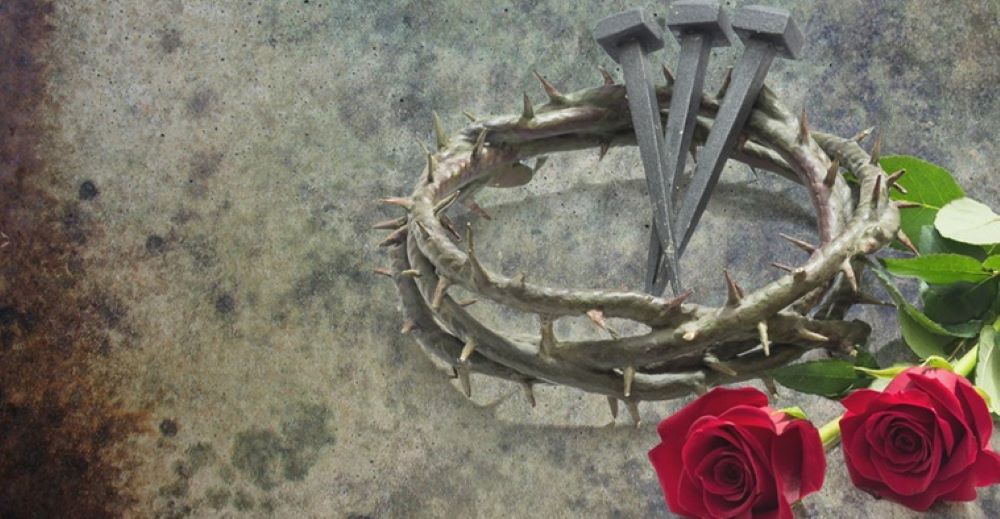 Daniel Kolenda in his book
Daniel Kolenda in his book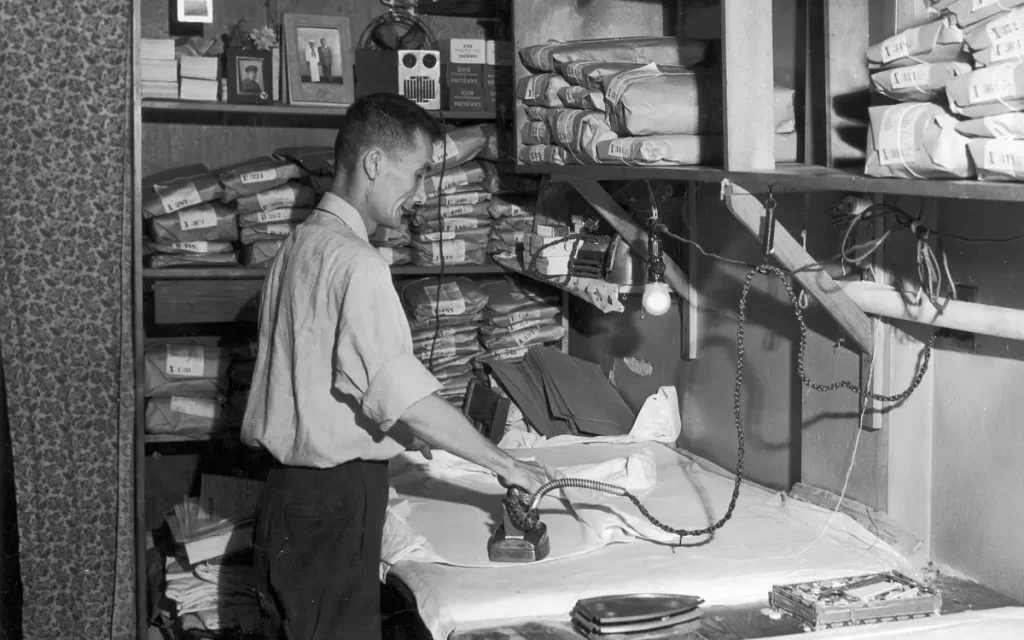 A fascinating
A fascinating  Isaiah prophesied that a king would come who would reign like no other. Details of his reign are given: his birth; his ministry in ‘Galilee of the Gentiles’; his lineage, from the line of Jesse; his anointing to do God’s work. Anyone who doubts the validity of Christ’s claim to kingship needs to look back to the accuracy of Isaiah’s predictions.
Isaiah prophesied that a king would come who would reign like no other. Details of his reign are given: his birth; his ministry in ‘Galilee of the Gentiles’; his lineage, from the line of Jesse; his anointing to do God’s work. Anyone who doubts the validity of Christ’s claim to kingship needs to look back to the accuracy of Isaiah’s predictions.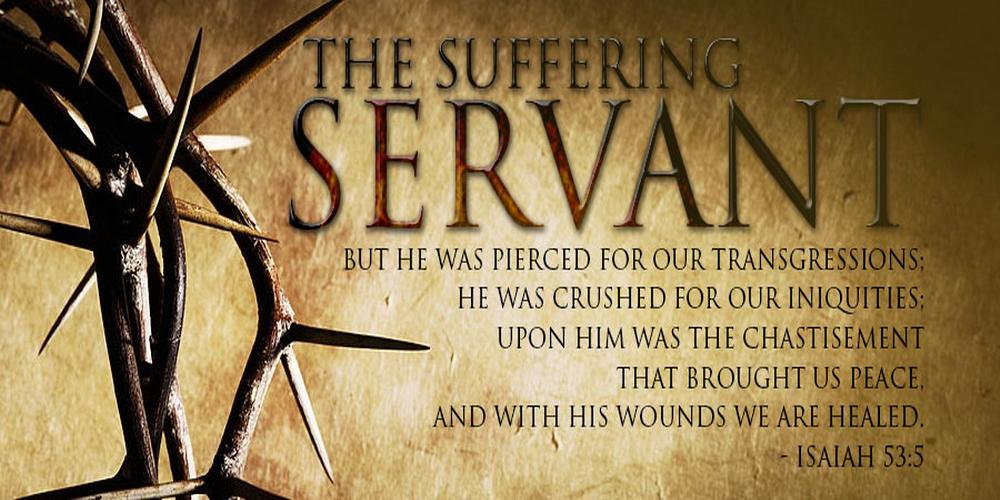 In her book
In her book Back in 1921, a missionary couple named David and Svea Flood went with their two-year-old son from Sweden to the heart of Africa—to what was then called the Belgian Congo. They met up with another young Scandinavian couple, the Ericksons, and the four of them sought God for direction. In those days of much tenderness and devotion and sacrifice, they felt led of the Lord to go out from the main mission station and take the gospel to a remote area.
Back in 1921, a missionary couple named David and Svea Flood went with their two-year-old son from Sweden to the heart of Africa—to what was then called the Belgian Congo. They met up with another young Scandinavian couple, the Ericksons, and the four of them sought God for direction. In those days of much tenderness and devotion and sacrifice, they felt led of the Lord to go out from the main mission station and take the gospel to a remote area.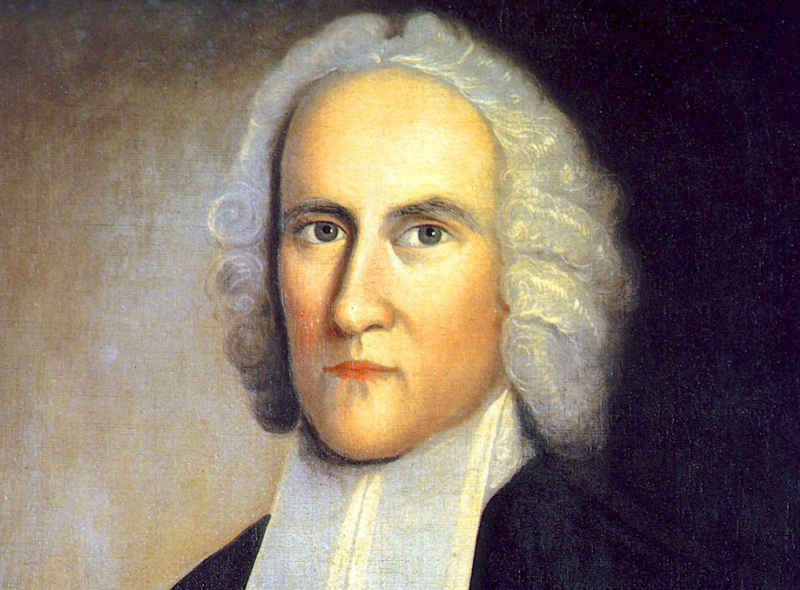 Jonathan Edwards (1703-1758) is acknowledged to have played a role in one of America’s First Great Awakening and he experienced the first revival in 1733-1735. He is also known to be one of America’s greatest intellectuals and philosophical theologians. He wrote many books including
Jonathan Edwards (1703-1758) is acknowledged to have played a role in one of America’s First Great Awakening and he experienced the first revival in 1733-1735. He is also known to be one of America’s greatest intellectuals and philosophical theologians. He wrote many books including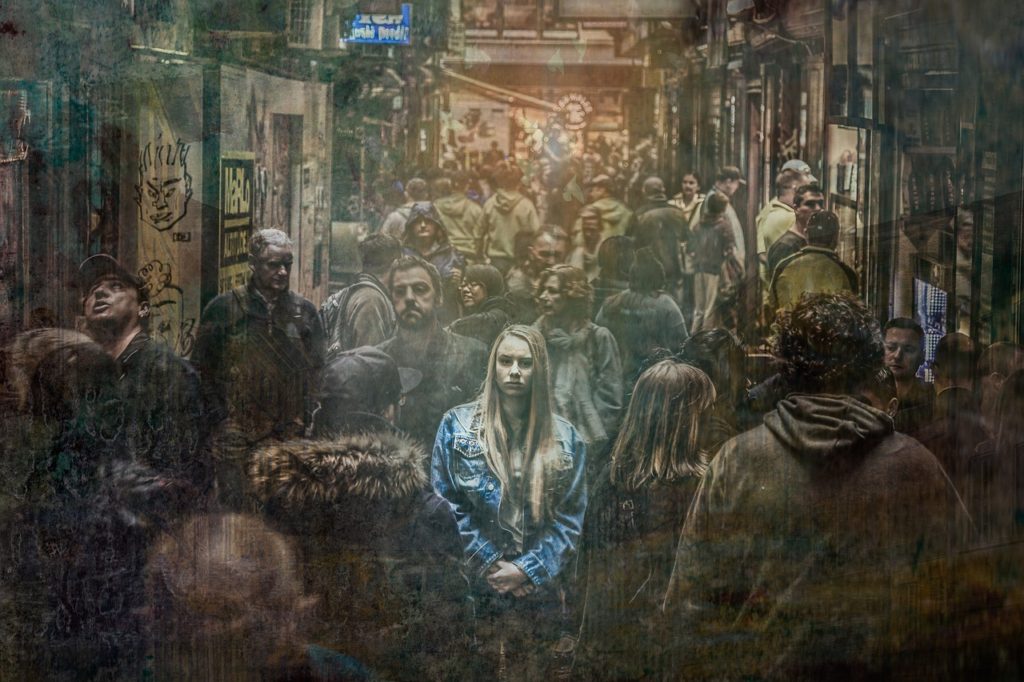 We were warned, but nobody listened. I’m referring to the warning about how nefarious forces have been planning America’s demise for many decades now. Specifically, how our once-great nation, founded on Godly principles by Godly men and women seeking true freedom and liberty would eventually be destroyed from within — by Communism. In 1958, W. Cleon Skousen, a former FBI employee, published a book titled “The Naked Communist.” Five years later, in January of 1963, Albert ‘Syd’ Herlong — a member of the House of Representatives from Florida — and a Democrat — stood before Congress and listed the “45 Current Communist Goals,” which were entered into the official Congressional Record.
We were warned, but nobody listened. I’m referring to the warning about how nefarious forces have been planning America’s demise for many decades now. Specifically, how our once-great nation, founded on Godly principles by Godly men and women seeking true freedom and liberty would eventually be destroyed from within — by Communism. In 1958, W. Cleon Skousen, a former FBI employee, published a book titled “The Naked Communist.” Five years later, in January of 1963, Albert ‘Syd’ Herlong — a member of the House of Representatives from Florida — and a Democrat — stood before Congress and listed the “45 Current Communist Goals,” which were entered into the official Congressional Record.